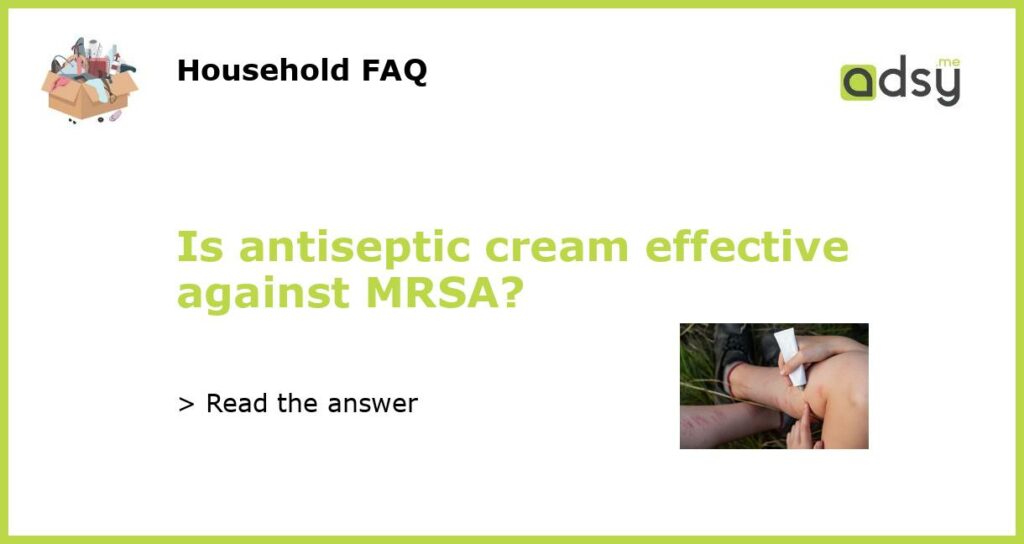Antiseptic Cream and MRSA: Is it Effective?
MRSA, also known as Methicillin-resistant Staphylococcus aureus, is a bacterium that causes infections in different parts of the body. This type of infection is difficult to treat as it is resistant to commonly used antibiotics. One of the questions that people ask when it comes to MRSA is whether antiseptic cream is an effective treatment option. Here’s what you need to know.
Understanding Antiseptic Creams and How They Work
Antiseptic creams contain substances that help prevent bacteria from growing on wounds, cuts or other affected areas. They are used for minor skin infections and are an over-the-counter treatment option. Antiseptics like iodine, chlorhexidine, and hydrogen peroxide are known to help reduce risk of infections, including those caused by staph bacteria like MRSA. However, the efficacy of antiseptic creams against MRSA is limited.
The Effectiveness of Antiseptic Cream Against MRSA
While it is true that antiseptic creams can help prevent infections and promote healing of minor cuts and wounds, their effectiveness against MRSA is quite limited. The high resistance of MRSA bacteria means that antiseptic creams may not be strong enough to handle major MRSA infections. In such cases, stronger antibiotics or other treatment options may be needed.
When to Use Antiseptic Creams for MRSA Infections?
Antiseptic creams may be used as a complementary treatment option for MRSA infections that are not too severe. This means that in cases where MRSA infection is still mild and localized, antiseptic creams can be used alongside other treatment options to speed up the healing process. However, you should always seek advice and guidance from a qualified medical professional before using any antiseptic cream for MRSA infections or other medical conditions.
Other Treatment Options for MRSA Infections?
Antibiotics such as vancomycin are usually the first line of treatment when dealing with MRSA infections. Other options may include draining of infected wounds, ointments, and other topical treatments. The best option for you will depend on the severity of MRSA infection, your medical history, and your symptoms. Always seek advice and guidance from a qualified medical professional for MRSA infections.






